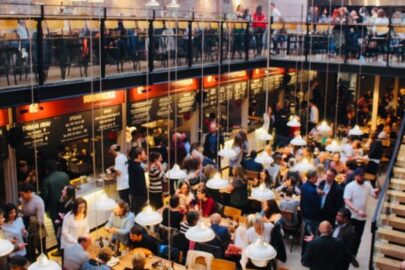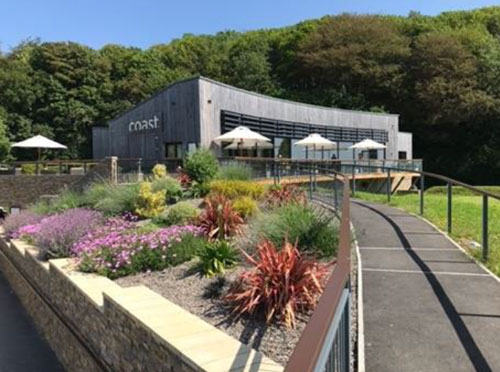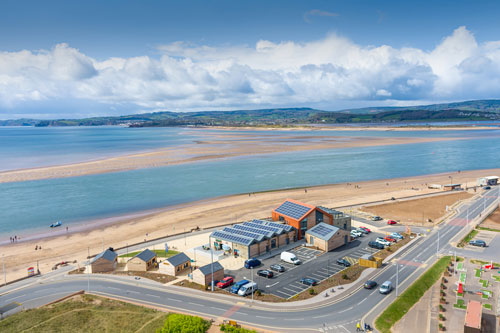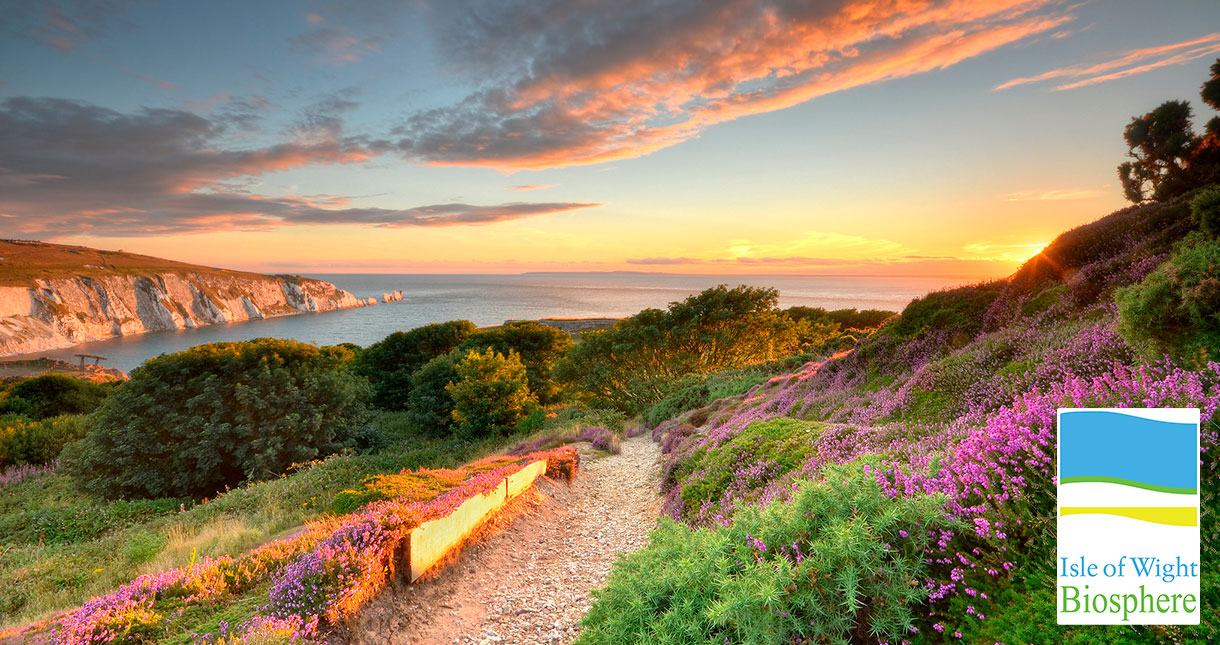The English Riviera is an established coastal destination, but intense competition and changing visitor markets mean there is a continual need to develop new and better experiences to drive more visits, tackle the seasonal imbalance and increase spending and benefits for local communities and businesses.
Tourism faces some big challenges generally – not least how to develop sustainably and respond to the climate crisis, there is also a need to think about growth that is sustainable with a low carbon impact.
New developments, including those identified below, should all aim for zero carbon, with low impact to protect the natural environment and all impacts are minimised and in line with Torbay’s carbon neutral 2030 target. This should be evaluated as part of any business case and feasibility assessments, aligning with Carbon Neutral Torbay.
Finally, there is a need to manage expectations. Changes take time to deliver and are part of a ‘long game’ if the destination is to emerge stronger from the pandemic.
The growth priority themes which follow are not everything that can or will happen. Rather they are the focus for development which is pragmatic, deliverable and catalytic and which responds to the market opportunities for the English Riviera.
The four growth priority themes are:
- Food and Drink
- On and in the Water
- UNESCO Global Geopark
- Culture and Events
These development themes are the priority strategic Actions of the DMP for delivery partners to take forward, underpinning growth. They are explained in detail below, set out with a clear rationale validating their status:
Theme 1: Food and Drink
Expand and bring England’s Seafood Coast concept to life. Re-launch with a focus on high-quality, local food and drink. Develop a reputation for food and drink that emphasises the sustainable production and consumption with stronger local supply chains across the English Riviera, and potentially wider into Devon and the South West.
Rationale
Food and eating out is increasingly important to visitors who seek authentic local experiences, but it is hard to be distinctive. The seafood sourced from Tor Bay’s local waters is a strong Unique Selling Point. For visitors, it offers a ‘flavour of the English Riviera and UNESCO Global Geopark’ and the same product you can find in high end London restaurants at much better value. As well as flavours of the sea, there are flavours from the land to enjoy. Food and drink also offer an opportunity to fill and reinvigorate redundant spaces; and combined with music and entertainment can be a significant part of major events, as well as an opportunity for a standalone event in its own right.
Action 1: Sustainable food and drink destination
Revive the ERBID food and drink focus group, explore options to work with the Devon Food Partnership and Sustainable Food Place award. Focus on initiatives to promote local producers/businesses to ‘taste the English Riviera and UNESCO Global Geopark,’ reduce food waste, sustainability and improve local supply chains. Develop appropriate support tools for businesses. Increase food and drink experiences, including pop-ups, ‘try-me,’ making, tasting and cookery experiences.
- Outcome: 5% annual growth in spend on local suppliers
- Measured by: Business Survey
- Delivered by: ERBIDCo, Private Sector
- Resources: £10,000 (new, per annum)
- Timetable: 2022-27
Action 2: Relaunch England’s Seafood Feast as a signature event
The September food and drink event should become a signature event in the destination calendar. Increase annual visitor footfall, overnight stays and spend
- Outcome: £2.5m of annual economic impact
- Measured by: Event Impact Survey
- Delivered by: ERBIDCo, Private Sector, Torbay Council
- Resources: Existing resources
- Timetable: 2022-27
Action 3: Inspiring Dining
Enable inspiring dining spaces, such as around the waterfront, pop-ups, and redundant spaces/ buildings to create special and unique places to eat and drink with a focus on quality and local.
- Outcome: £100,000 equivalent PR/ media coverage
- Measured by: Media Monitoring
- Delivered by: Private Sector, Torbay Council
- Resources: Existing resources
- Timetable: 2023-30
Our inspiration

Shelter Hall is situated on Brighton’s seafront in a formerly derelict 15,000 sq. ft Victorian building. It is a pop-up food market that brings together seven independent kitchens and a bar, split over two indoor floors and an outdoor terrace. It offers emerging chefs a four-month residency, opening their first physical space and gain access to up to 100,000 customers at the venue including mentorship and training. Sessions, which operates Shelter Hall, is currently looking to expand to new destinations.
Duke Street Market opened in the heart of Liverpool city centre in 2019. Self-described as a ‘social eating concept,’ it features six resident kitchens providing individual food concepts, a coffee kiosk, and bar within the shell of a restored 100-year-old warehouse covering 5,000 sq. ft.
Theme 2: On and in the Water
Develop on and in the water products and activities across the destination with world class provision for ‘try-me’ visitor experiences, as well as providing adequate facilities and services for self-equipped enthusiasts. Develop the connection with the UNESCO Global Geopark designation, improving visitors’ awareness of the environment and link to land-based active experiences. Ensure all existing and new developments are designed, developed, and operated sustainably and with a low-carbon impact, protecting the natural environment and aligning to the ambitions of Carbon Neutral Torbay and the English Riviera UNESCO Global Geopark Environmental Policy Framework and Marine User Policy.
Rationale
The 2021 ERBIDCo Visitor Survey found that 84% of visitors visited the beach/ sea (23% of visitors gave this as the main reason for the visit). Water-based activities were pursued by 21% of visitors (5% of all visitors gave this as the main reason for their visit). 46% of those who did not take part in water-based activities found the idea appealing. Sport England states that 27.6% of the total active population are active outdoors, and according to the Watersports Participation Survey (2018) the volume of participants increased for the third year in a row. 94% of all watersports activities in 2019 took place at the coast, and 38% of all activities were in the South East and South West. The south coast dominates participation in boating activity. The most popular activities in 2018 included spending leisure time at the beach, coastal walking, and outdoor swimming. There is a long-term trend for growth in surf/body/paddle-boarding, canoeing and small sailboat activities. Covid-19 has increased the interest and appeal of water-based activity and personal wellbeing, as evidenced through VisitEngland Covid-19 Sentiment Trackers.
Action 4: Watersports Hub Development
Undertake a feasibility study into a watersports hub development ensuring alignment to Carbon Neutral Torbay and the English Riviera UNESCO Global Geopark Environmental Policy Framework and Marine User Policy. Ensure new facilities are sustainable with a low carbon impact and interpret the Geopark and align to the Torbay Story messaging.
- Outcome: Feasibility study delivered
- Measured by: DMG monitoring
- Delivered by: Torbay Council, Tor Bay Harbour Authority, TDA, ERUGGp
- Resources: £20,000 (new, one off)
- Timetable: 2023-24 (feasibility)
Action 5: Business Development
Enable on and in the water/ watersports development by supporting businesses to establish themselves and grow. As above, alignment to Carbon Neutral Torbay and the Geopark.
- Outcome: 10 businesses supported
- Measured by: Business Survey and DMG monitoring
- Delivered by: Torbay Council, Private Sector, TDA
- Resources: Existing resources/ identify new funding opportunities
- Timetable: 2022–30
Our inspiration

Coppet Hall Beach Centre in Saundersfoot, Pembrokeshire is a new building that contains a restaurant, watersports retail, activity centre, new public conveniences including family changing spaces and external beach showers. The Beach Centre is an environmentally friendly building - solar panels, air source heat pumps, a sedum roof, and improved footpath and cycling access all contribute to its BREEAM ‘Excellent’ rating. The restaurant ‘Coast’ focuses on using local ingredients and is recommended in the Michelin Guide. It was funded by a mix of private and public investment including Visit Wales’ Coastal Tourism Project, part funded by the European Regional Development Fund through the Welsh Government.

Sideshore is a community-owned watersports centre that opened in 2020 in Exmouth. As well as a watersports centre offering equipment hire, lessons and wellness activities, the development includes a casual seafront bar, restaurant and café run by Exeter celebrity chef Michael Caines. It is a Community Interest Company (CIC) made up of representatives from the local area. It aims to be the most sustainable building it can possibly be - all tenants have signed ‘’green leases’’ to ensure there is a ban on all single use plastics, twice as many solar panels were installed than the recommended coverage to generate as much renewable energy as possible, EV charging points and bike racks have been installed to encourage greener modes of transport, and construction was undertaken by a local firm, using 100% local staff.
Theme 3: UNESCO Global Geopark
The UNESCO Global Geopark designation is an international mark of quality and distinctiveness. Because Geoparks are about the connection between a landscape and people, the UNESCO Global Geopark essentially tells the story of the English Riviera and the story of its landscape. Key opportunities are to use existing and new experiences and locations to tell those stories in original and imaginative ways, highlighting and reinforcing the designation and running the UNESCO Global Geopark ‘story of the landscape’ through themes such as Heritage, Culture, Food and Drink, and Leisure. Sustainable tourism, Geo-tourism and ‘Slow Tourism’ initiatives are consistent with protecting and interpreting the landscape and reinforce the UNESCO Global Geopark designation.
Work should align with the Torbay Heritage Strategy and the recent Heritage Interpretation Framework, a tool providing thematic interpretation across heritage (natural and built), and which also encompasses the English Riviera UNESCO Global Geopark designation, as well as complementing the Torbay Story.
Rationale
2020 research [9] showed that 76 UK UNESCO designated destinations benefited from £151m of additional revenue as a result of their designation, mostly in the form of tourism revenues. The designation is more than geology – it is a wraparound for the heritage and culture of this unique area. While Geoparks are often not well understood by visitors, the UNESCO designation nonetheless brings with it a reputation for quality and distinctiveness that should be the foundations for destination development. As the designation must be revalidated every four years, the development of relevant tourism product strengthens the likelihood of retaining the designation.
Action 7: Geopark Interpretation
Aligning to the Torbay Heritage Strategy & Heritage Interpretation Framework, integrate UNESCO Global Geopark into more products, experiences, visitor information and support businesses with creative storytelling and visual branding. Explore options to further engage with businesses to develop ideas, such as simple toolkits and workshops. Explore developing Geopark Ambassadors to help tell the story of the Geopark while supporting the visitor welcome.
- Outcome: 10% of tourism businesses using UNESCO Global Geopark in information/ marketing
- Measured by: Business Survey
- Delivered by: English Riviera UNESCO Global Geopark (ERUGGp), Private sector
- Resources: £10,000 (one off), existing resources/ identify new funding opportunities
- Timetable: 2022-30
Action 8: Digital Geopark Trails
Develop options and implement digital trails for use on mobile devices with integrated interpretation.
- Outcome: 3 new digital trails created and 5000 users/ downloads
- Measured by: Usage figures for trail downloads
- Delivered by: ERUGGp, ERBIDCo
- Resources: £15,000 (one off), identify new funding opportunities
- Timetable: 2023-30
Action 9: Designated Landscape Partnership Trails and Promotion
Explore opportunities to work with other designated landscapes across the South West to promote the collection of unique landscapes and monuments.
- Outcome: Twice yearly planning meetings held
- Measured by: DMG monitoring
- Delivered by: ERUGGp
- Resources: Existing resources/ to be determined
- Timetable: 2023-30
Our inspiration
The Jurassic Coast stretches 95 miles along England’s South West coast from Exmouth in Devon to Swanage in Dorset. It became a World Heritage Site in 2001 for the outstanding universal value of its rocks, fossils, and landforms. It celebrates the UNESCO World Heritage Site status it has been given by explaining ‘what’s in it’ for a prospective visitor and making it meaningful to them. Visitdorset.com uses the strapline ‘Home of the Iconic Jurassic Coast,’ giving prospective visitors the idea that they are going to experience something of real significance with a visit to the destination.

Isle of Wight was declared a UNESCO Biosphere in 2019. The focus on the tourism side has been to use the Biosphere status as a stamp of a high-quality environment and to underline the opportunities to explore that natural environment sustainably on foot or on a bike. It links existing quality natural environment experiences to the new designation. In particular, it uses the Biosphere designation to underline the quality of its stargazing experiences and Slow Travel. It explains what Biosphere means to its visitors simply and clearly on its website and provides hyperlinks to more information where appropriate. It provides a joined-up visitor experience in the natural environment via an app with cycle and walking routes, incorporating attractions and places to stay, maps and user reviews. It encourages and incentivises tourism businesses to value the environment via a green star programme that also helps visitors know which establishments support slow travel and other environmental actions.
Theme 4: Culture and events
Align the DMP, its aims, objectives, growth markets and themes to complement and support delivery of Torbay’s Cultural Development, the Torbay Heritage Strategy, Torbay Council Outdoor Events Strategy, and the recent Heritage Interpretation Framework – a useful tool for providing thematic interpretation across heritage (natural and built), and which also encompasses the English Riviera UNESCO Global Geopark designation, developed through National Lottery Heritage.
Opportunities could include focus on thematic interventions, with a single theme in each town for impact, which also aligns with the Torbay Story. Utilising the Framework as a basis and using assets from previous cultural tourism development work of ‘Writers on the Riviera’ for example, enabling a different type of activation or intervention, developed with local talent and partners.
Rationale
Culture and events can bring a range of direct (economic) and indirect (reputation, wellbeing, quality of life) benefits. They help animate the destination, local cultural and event programmes can strengthen the sense and distinctiveness of the place, and these are the reasons why the Council has planned significant investment over the next three years. The benefits and opportunities are well articulated in the English Riviera Cultural Tourism Strategy and these recommended actions align with the ERBID2 Business Plan and our Outdoor Events Strategy.
Action 10: Thematic Interventions
Undertake a critical appraisal of current programming against the aims of the DMP and the thematic framework to identify signature events across the three towns to strengthen the cultural offer to attract new visitors.
- Outcome: 3 signature events
- Measured by: Critical appraisal
- Delivered by: Torbay Culture, Torbay Council, ERBIDCo
- Resources: Existing resources
- Timetable: 2022-30
Our inspiration

Blackpool’s CultureBlackpool project showcases and highlights the cultural offer that currently exists in-resort to visitors and residents. It has created a new partnership between public and private sector partners to promote Blackpool’s back story of architecture, heritage, exhibitions, internationally acclaimed installations, and events to its 142,000 residents and 18 million visitors. It has launched a new B/Side Campaign in a bid to flip expected perceptions of Blackpool and persuade people to ‘tune in,’ look up and around, and to appreciate the cultural side of the resort.
Galway is renowned for its vibrant lifestyle and for hosting numerous festivals such as Galway International Oyster Festival, an annual free event held on the last weekend of September in the centre of the city attracting tens of thousands of visitors. According to Tourism Ireland, it has been called “one of the greatest events on earth.”